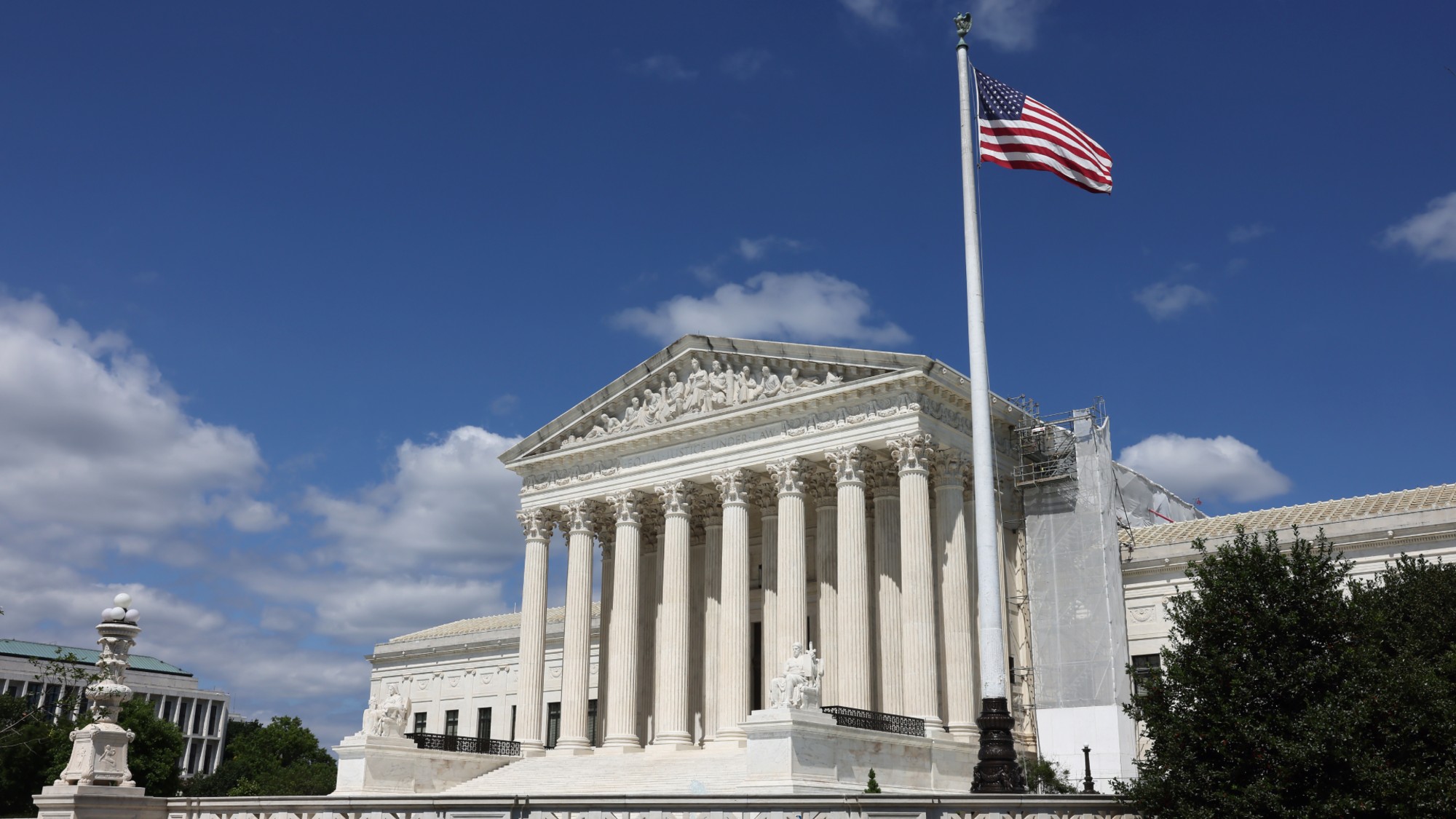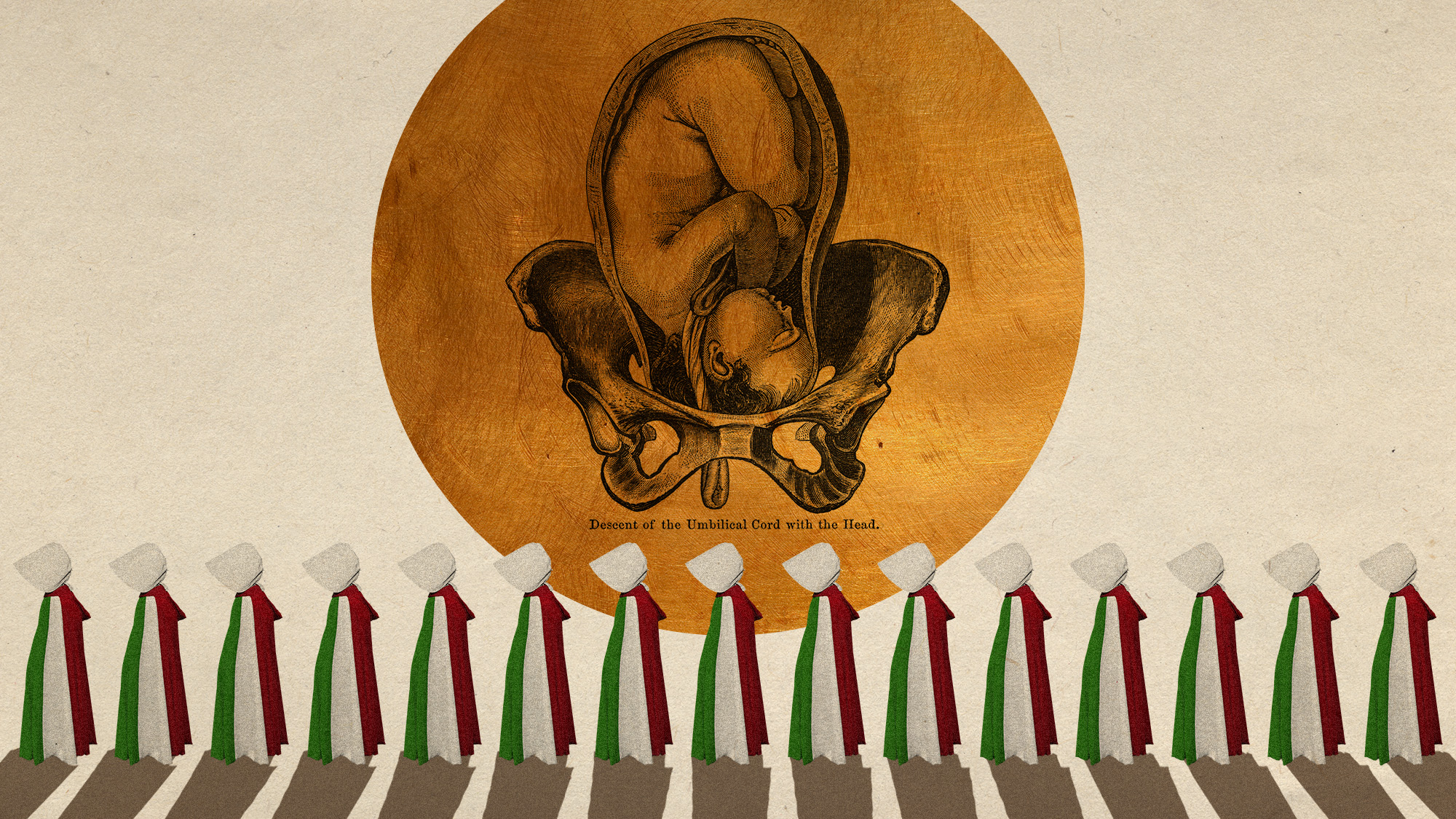Is the Comstock Act back from the dead?
How a 19th-century law may end access to the abortion pill


A free daily email with the biggest news stories of the day – and the best features from TheWeek.com
You are now subscribed
Your newsletter sign-up was successful
The Comstock Act is back. The 19th-century law — signed by President Ulysses Grant in 1873 — is at the heart of a federal judge's ruling that strikes down FDA approval of the abortion drug mifepristone, The Associated Press reports. The federal law was "dormant for a half-century," but anti-abortion groups "have seized on Comstock to try and shut off the flow of abortion drugs" after the Supreme Court overturned Roe v. Wade in 2022.
The new ruling is an "open invitation" for anti-abortion groups "to seek a nationwide federal ban on all abortions," Mary Ziegler writes at The Atlantic. The act prohibits mailing "every article or thing designed, adapted, or intended for producing abortion." The FDA had followed a long-held rule that abortion drugs can be mailed "when the seller does not intend them to be used unlawfully." Judge Matthew J. Kacsmaryk ruled that the law's text holds that there is no scenario under which the drugs can be mailed.
While Congress amended the Comstock Act several times over the past 150 years, "lawmakers left the abortion aspects of the law" alone, the Texas Tribune reports. And the Supreme Court has never considered a case involving the law "because it was unenforced and thus unchallenged for so long." Now the case is almost certainly headed to the nation's highest court — "a significant step toward bringing this zombie law back to life."
The Week
Escape your echo chamber. Get the facts behind the news, plus analysis from multiple perspectives.

Sign up for The Week's Free Newsletters
From our morning news briefing to a weekly Good News Newsletter, get the best of The Week delivered directly to your inbox.
From our morning news briefing to a weekly Good News Newsletter, get the best of The Week delivered directly to your inbox.
What are the commentators saying?
Until recently the Comstock Act "seemed a relic," Michelle Goldberg writes at the New York Times. Its sudden revival is a sign of how quickly the landscape on abortion has shifted — only a year ago "the idea of a judge using the Comstock Act to halt medication abortion nationwide would have seemed hysterical." But it's no accident the revival of "Comstockery" has come after years of widening social and sexual freedoms like gay marriage and legalized marijuana: "There's a dialectic relationship between freedom and reaction." The revival of the Comstock Act is not a good thing: "A lot of people are going to suffer from its rebirth."
"Of course, the Biden administration wouldn't enforce that law against the U.S. Postal Service," opines the Los Angeles Times editorial board. But the law isn't really the point: The real intent is to "intimidate pharmaceutical companies into not selling abortion pills through mail-order and healthcare providers." It's unfortunate that anti-abortion activists are trying "to weaponize a 150-year-old law that shouldn't even be on the books."
But that law is on the books, The Heritage Foundation — a right-wing think tank — points out in its explainer on the topic. "Federal law has prohibited mailing abortion drugs for more than 100 years." The Biden administration has stretched its interpretation of the law "to invent a version of the Comstock Act that would not hinder abortion access." The problem: It can't just do that. "Congress has repeatedly chosen to maintain the Comstock Act's plain language, which clearly prohibits mailing abortion drugs." Legally, federal authorities can't ignore the "clear and unqualified language" of the law.
Still, some anti-abortion activists are worried that the federal courts will be seen as having overstepped. "For a federal judge in Texas to be seen as having found a kind of legal cheat code to prevent access to abortion medication nationwide will inspire new levels of backlash," Patrick T. Brown, a fellow at the conservative Ethics and Public Policy Center, writes in The Atlantic. The real challenge, he writes, is convincing most Americans "that abortion is not only immoral but unnecessary."
A free daily email with the biggest news stories of the day – and the best features from TheWeek.com
What's next?
On to higher courts. Politico points out that the Department of Justice is appealing Kacsmaryk's ruling — and a second ruling by a federal judge in Washington, upholding the FDA's approval of mifepristone, means that the Supreme Court is probably going to resolve the contrary opinions. In the meantime, the Texas ruling "will take effect across the country in a week unless a higher court issues a stay."
Abortion providers are already making backup plans if the courts force the drug off the market, the Associated Press reports. Mifepristone is usually taken in combination with a second drug, misoprostol. Doctors and clinics could switch to only using the second drug, an approach "widely used in countries where mifepristone is illegal or unavailable."
Since Kacsmaryk ruled that mailing any abortion drug is illegal under Comstock, there is a chance that any provider who mails misoprostol could also be prosecuted, Mark Joseph Stern writes at Slate. But that is up to the Supreme Court. A year after Roe v. Wade was struck down, abortion is once again going to be center stage: "This is a moment of truth for the justices."
Joel Mathis is a writer with 30 years of newspaper and online journalism experience. His work also regularly appears in National Geographic and The Kansas City Star. His awards include best online commentary at the Online News Association and (twice) at the City and Regional Magazine Association.
-
 Switzerland could vote to cap its population
Switzerland could vote to cap its populationUnder the Radar Swiss People’s Party proposes referendum on radical anti-immigration measure to limit residents to 10 million
-
 Political cartoons for February 15
Political cartoons for February 15Cartoons Sunday's political cartoons include political ventriloquism, Europe in the middle, and more
-
 The broken water companies failing England and Wales
The broken water companies failing England and WalesExplainer With rising bills, deteriorating river health and a lack of investment, regulators face an uphill battle to stabilise the industry
-
 How far does religious freedom go in prison? The Supreme Court will decide.
How far does religious freedom go in prison? The Supreme Court will decide.The Explainer The plaintiff was allegedly forced to cut his hair, which he kept long for religious reasons
-
 Is the UK about to decriminalise abortion?
Is the UK about to decriminalise abortion?Talking Point A rise in prosecutions has led Labour MPs to challenge the UK's abortion laws
-
 The Supreme Court case that could forge a new path to sue the FBI
The Supreme Court case that could forge a new path to sue the FBIThe Explainer The case arose after the FBI admitted to raiding the wrong house in 2017
-
 Supreme Court to weigh transgender care limits
Supreme Court to weigh transgender care limitsSpeed Read The case challenges a Tennessee law restricting care for trans minors
-
 Abortions rise to record level 'due to cost of living'
Abortions rise to record level 'due to cost of living'Speed Read Low-income women face 'heart-breaking' choice, warns abortion charity chief
-
 Italian senate passes law allowing anti-abortion activists into clinics
Italian senate passes law allowing anti-abortion activists into clinicsUnder The Radar Giorgia Meloni scores a political 'victory' but will it make much difference in practice?
-
 France enshrines abortion rights in constitution
France enshrines abortion rights in constitutionspeed read It became the first country to make abortion a constitutional right
-
 Supreme Court wary of state social media regulations
Supreme Court wary of state social media regulationsSpeed Read A majority of justices appeared skeptical that Texas and Florida were lawfully protecting the free speech rights of users
